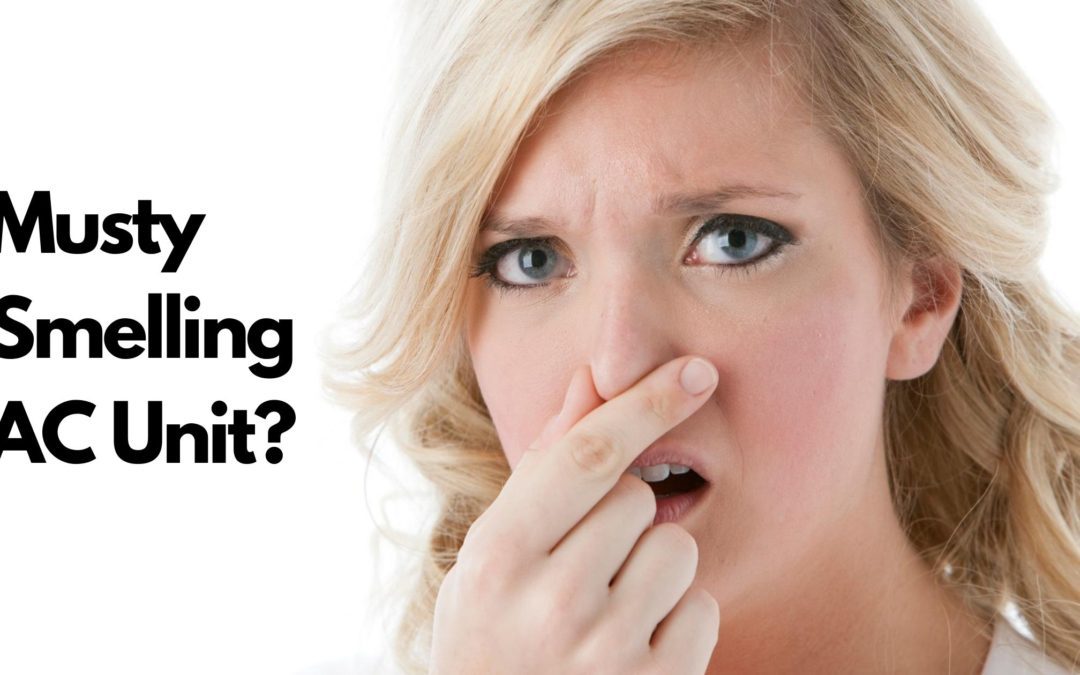Your air conditioning unit should bring relief, not dread. In the hot months, you want to know that your AC unit is there to keep your home’s internal temperature feeling bearable. But if the cool air coming out of your vents carries with it a foul smell, that can leave you with an unpleasant dilemma. Do you switch off your AC unit and deal with the hot, humid temperature? Or do you keep your AC running so that you can stay cool and comfortable, even if it means a musty or otherwise worrisome odor? Here’s your third option: call your HVAC technician for an AC repair in Santa Rosa. Your tech will be able to inspect your unit, diagnose the problem that is causing the odor, and offer a fix.
While calling a professional is definitely your best bet if you are dealing with an AC-related odor, you may also be curious about which causes can lead to musty-smelling air. In this post, we will explore five reasons that your AC unit might be adding an unwanted odor to your conditioned air.
-
Your air filters are dirty
If you are contending with an “AC smells musty” situation—or any HVAC odor problem—the first thing you will usually want to check is your air filter. The air filter in your HVAC system is there to catch dust, dirt, hair, and other debris as air circulates through your home, to make sure it doesn’t damage your AC unit or your furnace. Over time, as the filter accumulates more and more debris, it will become clogged—hence the need to change out your filters regularly. Since air has to pass through your filter every time it is circulated through the system, it can take on any odors that are building up on the filter itself. Dust, pet dander, and other contaminants are enough to leave your air smelling distinctly less fresh. Also, reduced airflow caused by clogged HVAC filters can lead to a buildup of dust, moisture, and even mold throughout your ductwork, which only imparts more unpleasant odors on the air in your home.
Luckily, this problem is easily avoidable and not too difficult to solve, at least. Simply changing your filter out every three months or so (more for homes with pets) can do wonders for your system in multiple ways, odor prevention included. You may also be due for a duct cleaning, which can help get those contaminants out of your ductwork and eliminate the odors you have been smelling.
-
Your ducts aren’t clean
Even with a clean filter, your ducts could still be collecting all sorts of debris or mold spores, which can, in turn, affect odor and air quality. In most homes, ductwork has an “out of sight, out of mind” role. It is tucked into parts of our homes that we don’t look at or think about very often—and that we rarely if ever clean. Rafters, attics, garages, basements: these are the parts of our homes where ducts are installed and are easily forgotten. If the ducts are properly sealed and insulated, it doesn’t matter much if they run through a dirty garage or attic. However, ducts with holes or leaks are not just going to lose air and hurt the efficiency of your AC unit/furnace; on the contrary, leaky ductwork is also going to offer lots of entry points for contaminants. Sealing, repairing, or even replacing your ductwork will solve the problem.
-
You have a dirty or frozen evaporator coil
The evaporator coil plays an essential role in cooling your home. It holds the chilled refrigerant, which, as air is blown across it, effectively removes the heat from the air. Evaporator coil problems could be behind your musty-smelling AC air. Just as filters or ducts can get dirty, evaporator coils can build up dust, dirt, moisture, and more. As part of regular AC maintenance in Santa Rosa, your HVAC technician should have “clean the evaporator coil” on their checklist.
-
You have a clogged drain pan
Air conditioning plays two roles: cooling the air in your home and removing the humidity. That excess moisture the unit is extracting from the air must go somewhere, and that spot is the drain pan. In optimal circumstances, a drain pan will collect drips of moisture and relay them toward a floor drain. Sometimes, though, the drain pan ends up clogged—usually because of dirt or rust—and starts growing mold. If your AC smells musty, the drain pan could be the culprit. Fortunately, drain pans are an inexpensive part to replace.
-
Your unit is oversized
When you buy a new AC unit, it’s important to consult with an HVAC professional to make sure you are purchasing a properly-sized appliance. If you end up with a unit that is too big or powerful for your home, musty air will likely be one of the side effects. An oversized AC unit will cause short-cycling, an issue where the AC unit turns on, issues a huge amount of cold air quickly, and then shuts off. Not only does short-cycling result in inconsistent temperatures throughout your home, but it also means that your AC unit never runs long enough to remove humidity/moisture from the air. As a result, you might contend with more moisture buildup throughout your home, which means that you are more likely to struggle with mold problems. Getting a unit that is better suited to your home’s size will solve the problem.
Call for AC Repair in Santa Rosa Today
Always remember that your nose is a mighty good detective. If something smells off, it probably is. That’s certainly the case when your AC smells musty, as that mustiness may be a sign of mold growth or other problems that can affect indoor air quality and cause problems with your health. Calling for AC repair or AC maintenance in Santa Rosa will help you solve the issue—if not preventing it from ever arising in the first place!
Sources: https://sansone-ac.com/air-conditioner-smell-like-mold/

